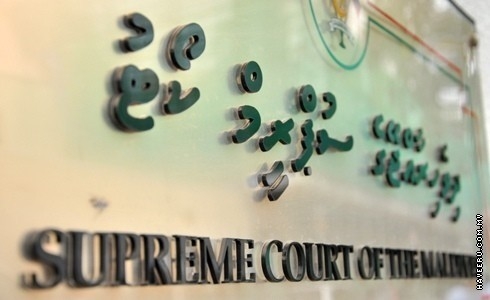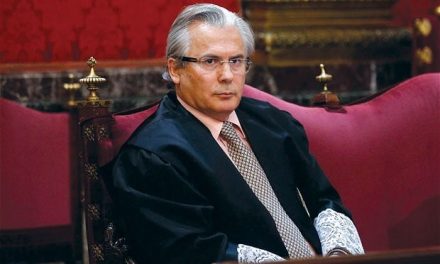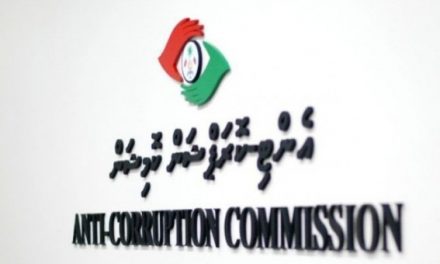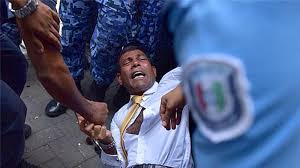5 July 2016
Judicial Service Commission is responsible for the appointment of judges and prosecuting attorneys. Head of the Judicial Service Commission, Judge Ali Hameed, who was found with foreign prostitutes in Colombo before he became the head. How can anyone expect Judicial Commission to be above board when it is headed by such a judge?
Here are some strange things happening in the judicial system in the Maldives.
Ali Rasheed, the magistrate of the Thinadhoo court, was arrested on 29 May 2016 and later released on the grounds of violation of due process. He was in a state of intoxication and a rubber packet containing a substance thought to be drugs was found on the ground near him. He was released because a judge can be arrested if the arresting officer observes the judge committing an offence. In all other circumstances, the Prosecutor General’s office must get an arrest warrant from the High Court. On 31 May 2016, the Judicial Service Commission suspended him and began investigation into the drug charge. Rasheed claimed that the rubber packet was 11 feet away from him and he was framed by the police.
Chief Judge of the Family Court, Hassan Saeed, was indefinitely suspended pending an investigation into an allegation of misconduct, the JSC said in a statement on its website.
Former Prosecutor General Muhthaz Muhsin was taken into custody, in February 2016, on suspicion of plotting to overthrow the government. It was suggested that Muhthaz and accomplices travelled by speedboat to Maamigili around 12:45am on 7 February 2016, to seek a court order to arrest President Abdulla Yameen and topple the government. Ahmed Nihan, senior judge of the Maamigili magistrate court was also arrested for allegedly issuing a forged warrant of arrest. Muhthaz was a criminal court judge prior to his appointment as PG in July 2014. Last year, he oversaw the controversial prosecution of former Defence Minister Mohamed Nazim and former President Mohamed Nasheed.
Former Defence Minister Mohamed Nazim was sentenced to 11 years in jail, for the possession of a rusty pistol in his house. Nazim’s lawyer said in a press conference that the police forensic report had shown that the DNA found on the gun discovered at Nazim’s residence matched Adheeb who himself is serving 10 year jail term for weapons possession. It would appear that Adheep framed Nazim.
Abdul Baree Yousouf was involved in sentencing former President Nasheed, former Defence Minister Mohamed Nazim and the Adhaalat chairman Sheikh Imran. Sheikh Imran was sentenced 12 years in jail on terrorism charges for his May day speech in 2015. Five charges under terrorism laws were framed against Adeeb. The charges include possession of pistols and explosives, abuse of authority and graft. The cases were being heard in different courts. Judge Baree took over all the cases to be tried by himself. Adheeb was sentenced to 15 years in jail.
In Adeeb’s case:
Most of the witnesses were termed as anonymous. The court did not reveal their names. No defence witness was called. With reference to the charge of possession of pistol, no pistol was recovered. It was only seen by an anonymous witness. What was taken by the court to be the bomb was described by one of the security personnel as something in the shape of a telephone. The Court accepted as the forensic evidence of the Saudi Arabian lab of traces of explosives. But FBI or other forensic teams of other countries including India did not find the presence of any explosive powder in the case of the “Finifenma“blast. A soldier, who anonymously testified making two bombs for Adeeb, has been granted immunity and witness protection by the Prosecutor General’s Office.
This article is not say any one mentioned here is guilty or not. Not only justice must be done but also it should seem to be done.
Maldives: Judicial corruption















